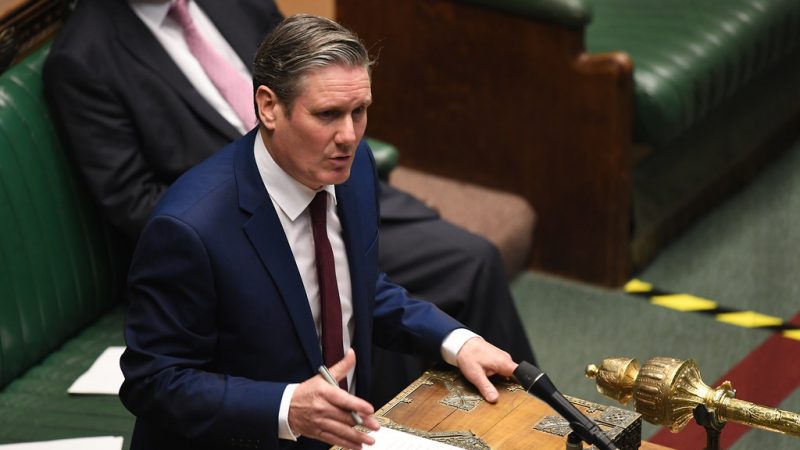Privatisation and profiteering won't limit global temperatures to 1.5 degrees

Our overheating world is on the verge of breaking the key temperature limit of 1.5 degrees Celsius for the first time, according to scientists. The rising emissions from human activities have increased the chances of surpassing the 1.5C threshold. While breaching the limit temporarily is concerning, it signifies the acceleration of global warming. Just a 1.5 degree rise risks famine, drought, floods and other extreme weather events that pose a significant threat to human life.
Therefore, significant change must be made to climate policy. While the fossil fuel giants triple their profits by accelerating the climate crisis, a prospective Labour government must pledge action to tackle this. Private energy companies cannot be held accountable for their dangerous actions. Only public ownership can manage the rapid decline in the fossil fuels sector required, whilst recognising the need for a just transition and the protection of workers.
The energy sector is one of the easiest sectors to decarbonise. Energy is also the biggest emitter of greenhouse gases, therefore its decarbonisation would have the most significant and immediate effect. However, rapid decarbonisation is hindered by the profitability of fossil fuels. Oil and gas companies continued investment in fossil fuel extraction prioritises their enormous profits over the safety of the planet. To achieve the necessary emissions reductions by 2030, it is imperative to rapidly phase out fossil fuels. This can only be achieved through public ownership.
The current privatised energy system has led to an engine of inequality. Oil and gas companies have generated obnoxious profits while millions suffer from fuel poverty. British Gas tripled its yearly profits while sending goons to break into people’s homes and install prepayment metres.
Windfall taxes on excessive profits are not enough to address the problem. The root issue lies in the lack of democratic control and the profit-driven nature of private corporations operating under private capital. The incentive for decarbonisation will always be overshadowed by the immense profits that can be procured through the exploitation of the planet’s resources. Therefore, only when held under public control will the climate crisis become a priority for the
energy sector.
An accountable, publicly owned system would prevent the profit driven policy that is driving climate change. A publicly owned organisation would provide energy stability as well as regulation of prices, preventing fuel poverty in the 3.26 million households that currently experience it. As well as its economic benefits, the lack of shareholders would allow for profits to be invested in green infrastructure, further lowering prices for the consumers, and making a significant impact on emissions.
The Labour Party’s commitment to cap extraction from existing oil and gas fields is a step in the right direction. However, it is crucial to recognise that there are already enough barrels of oil and gas in operation to exceed the obligations of the Paris Agreement. Starmer’s GB energy pledge would undoubtedly be a step towards democratic control of green power, but the Labour party must be pushing even further. GB energy does not yet represent full public ownership of energy – Labour must commit to a take over of existing firms, making a democratically accountable, publicly owned organisation the sole energy provider in the UK. Starmer must accept that the only way to stay below a 1.5 degree rise is radical (and electorally beneficial) action. Labour must follow the call of leading unions like Unite to bring the fossil industry into public ownership.
Unite’s call for public ownership is representative of widespread union support. Workers must be at the heart of a just transition and the thousands of jobs created by green energy is an opportunity to provide workers with fair pay and conditions. A just transition needs careful and considerate planning, but is the only way forward- A worker led effort to end the climate crisis must be a priority for Labour. Democratic transition planning is essential to diversify affected
economies and provide support for workers and communities. A just transition to renewable energy must prioritise the protection of impacted economies and workers in fossil fuel-dependent communities.
Compromising with fossil fuel giants is futile. The rate of return on oil and gas is higher than that of renewables, leading companies like BP and Shell to prioritise fossil fuel investments. Windfall taxes cannot effectively address this issue without control over investment decisions. Full public ownership of the energy system, under the control of workers and citizens, is the only way to redirect capital towards socially useful production and renewable energy.
Without public ownership, fossil fuel companies will continue to extract wealth for their shareholders, hindering progress towards a sustainable future. BP and Shell have spent billions on stock buybacks and dividends, money that should have been invested in the energy transition. Labour must now advocate for full public ownership of the energy system and the creation of publicly owned renewable energy capacity. It is essential to build organised political power to demand Labour’s commitment to public ownership of energy and ensure a just transition to a sustainable future. A future that will not exist on the current trajectory.
Eleanor Woolstencroft is a Labour for a Green New Deal activist
Image credit: UK Parliament / Jessica Taylor – Creative Commons
To reach hundreds of thousands of new readers we need to grow our donor base substantially.
That's why in 2024, we are seeking to generate 150 additional regular donors to support Left Foot Forward's work.
We still need another 117 people to donate to hit the target. You can help. Donate today.



